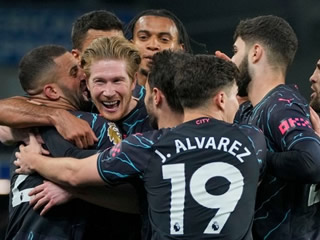Same difference? - What would Jose Mourinho be doing differently to Andre Villas-Boas at Chelsea?
Posted Saturday, February 11, 2012 by Goal.com

Both Portuguese bosses came from Porto to Stamford Bridge but the current Real Madrid manager enjoyed a significantly more successful first season than his understudy has thus far
When Andre Villas-Boas took on the Chelsea job, he will have no doubt considered that the weight of expectation it came with was far heavier than that at other clubs.
This was a role in the pressure cooker of the Premier League, with a club that had just sacked their manager for finishing second and, more importantly, had once been managed by Jose Mourinho.
The similarities between the two - young bosses, Portuguese, who had enjoyed success with Porto - were quickly picked up on by the press and then dismissed by Villas-Boas with equal alacrity upon his arrival. Yet, he must have known that it was an inescapable comparison and one which now perhaps haunts him.
The results since the 34-year-old’s arrival have rendered this association a negative one as, quite frankly, they do not compare favourably with the so-called 'Special One'. Mourinho came to London and won the Premier League at the first ask, something which, barring a miracle, Villas-Boas is not going to manage. However, though they both joined a Chelsea which had finished second the season before, the respective situations could not be much more different.
Mourinho joined a Chelsea on the crest of a wave, a team who had, the summer before, indulged in the most lavish spending spree seen in the history of football. They didn’t stop there either. Two players who had been signed expensively just the season before – an inexperienced Scott Parker and striker Adrian Mutu – were quickly cast aside as a raft of new names entered. This was a squad full of hungry, world-class players being refined with the addition of the likes of Ricardo Carvalho and Didier Drogba, something of an ideal situation.
The squad inherited by Villas-Boas, on the other hand, had seen expensive purchases made in the preceding January and was viewed as being able to kick on when these players further settled in. Juan Mata and Raul Meireles did join the club in the summer along with several younger stars - Oriol Romeu, Romelu Lukaku and Thibaut Courtois - but these were viewed as slight tweaks to the first-team setup alongside a base from which to build for the future. Nothing major.
However, it became apparent early on that there was a rot in the squad which superficial repairs could not remedy. The £50 million Fernando Torres which Villas-Boas had inherited suddenly did not seem worth five, and it was a similar story for defender-cum-centre-forward David Luiz. That this pair were not living up to their price-tag was then worsened by a drop in performance from those who had formed Chelsea’s spine for so much of their success.
Despite pressure from the media, Villas-Boas continued his policy of sparingly using both Drogba and Frank Lampard, two players whose seniority was perhaps best conveyed by the fact they are older than even he is. Their phasing out of the first team is an essential process, of course, and one which the former Porto man knew he would have to undertake. In fact, both men even gave him good reason to do so with performances which hint at a worrying truth for Chelsea fans. Namely, that deposed manager Carlo Ancelotti had squeezed the last consistently brilliant season out of them.
The possibility that this is the case says a lot for the utter failure of many men who have directly followed Mourinho into any job. Even Porto, a side whose domination of Portuguese football is unquestioned, failed to win the league the season after Mourinho’s departure, going through three managers in that year alone. Luigi Del Niri left the club before the season had even started before Victor Fernandez and Jose Couceiro paid the price for poor results.
Rafael Benitez’s struggles with Inter are equally well documented as the Spaniard tried in vain to mould an ageing squad which had been indelibly marked by the Portuguese. That Ancelotti is the only man to thus far avoid this fate says much for the Italian’s abilities but, as former player Joe Cole once revealed, that success actually lay in not making too many changes.
Villas-Boas has been unfortunate in that sense; with the Chelsea team he was bequeathed being one which would be quickly left behind without alterations. Given Roman Abramovich’s thirst for success, there was little choice but to oversee that change as an accelerated revolution, but such heady tasks take time.
Contending with the absence of Michael Essien through injury and poorly-performing big money signings for whom he cannot take responsibility hasn't exactly helped either.
Whilst the sheer weight of support for Mourinho and the noises coming from Madrid of his impending departure would lead many Blues fans to clamour for his return, it is hard to believe that any manager could contend with the problems Villas-Boas has faced. If Abramovich does choose to cut his losses and bring back the man with whom he so publicly fell out, the job done by whomever replaces him in the Spanish capital may well tell us a lot about the difficulty of the task which Villas-Boas is undertaking.
If Mourinho were to arrive at Chelsea, he may even find that it is circumstance, rather than managerial ability, which has set him apart from his compatriot so far.
Photos
More»Meet Eva Murati, the glamorous UCL presenter
Friday April 26 2024[PICTURE SPECIAL] Brighton 0 - 4 Manchester City
Friday April 26 2024Meet Jude Bellingham's stunning girlfriend Laura
Thursday April 25 2024



Your Say